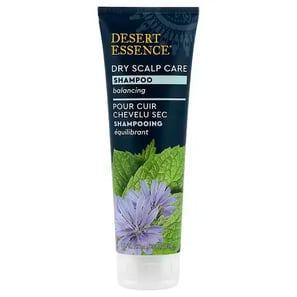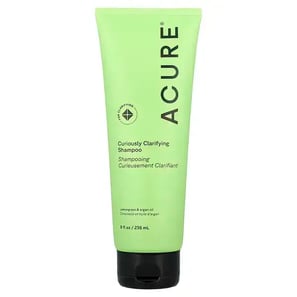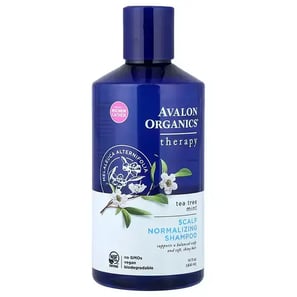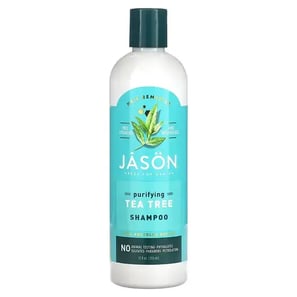Top Sulfate-Free Shampoos for Itchy Scalps
Discover the best sulfate-free shampoos for itchy scalps and say goodbye to dryness, flaking, and irritation. From tea tree–infused formulas to gentle surfactants and pH-balanced blends, our expert-tested guide helps you choose the perfect itch-relief shampoo.
HAIRCARE
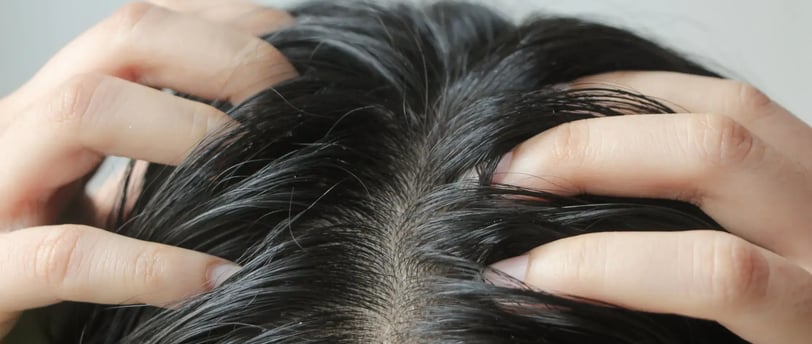

Top Sulfate-Free Shampoos for Itchy Scalps
DailyCurlz
What Is a Sulfate-Free Shampoo?
When I first started hearing about “sulfate‑free” shampoos, it felt like another beauty buzzword—until I dug into what sulfates actually do. In simplest terms, sulfates are surfactants (detergents) like sodium lauryl sulfate (SLS) and sodium laureth sulfate (SLES) that create the foamy lather we associate with a “deep clean.” They’re great at cutting through oil, product buildup, and grime, but they can also strip your scalp of natural oils, leaving it dry and prone to irritation.
A sulfate‑free shampoo, then, is one that omits those harsh detergents and uses gentler cleansing agents instead (think cocamidopropyl betaine, sodium cocoyl isethionate, or decyl glucoside). The result? You still get cleansing power and some lather, but without over‑stripping your scalp. If you struggle with an itchy, sensitive scalp—especially when sulfates exacerbate dryness or flakiness—a sulfate‑free formula could be exactly what your scalp needs to calm down
Our Top 5 Caffeine Shampoos Reviewed
Who It's Best For
Those suffering from persistent dryness and flaking who need deep hydration and gentle exfoliation without harsh sulfates.
Pros
Cons
Intensive Moisture: Aloe vera and jojoba oil replenish and lock in hydration.
Soothing & Exfoliating: Manuka oil, peppermint, and menthol calm irritation and help remove flakes.
Clean & Green: 0% sulfates, parabens, petrolatum; vegan, cruelty-free, and biodegradable formula.
Cooling Sensation: Menthol tingle may be strong for very sensitive scalps.
Light Lather: Mild surfactants yield a gentler foam that some may find too subtle.
Fragrance: Natural minty aroma could be overpowering for fragrance-averse users.
Key Ingredients
Aloe barbadensis leaf juice; Leptospermum scoparium (manuka) oil; Simmondsia chinensis (jojoba) seed oil; Mentha piperita (peppermint) oil; Menthol.
Who It's Best For
Anyone needing a gentle yet effective clarifying cleanse—ideal for removing buildup without over-drying, making it a solid choice for those with mildly itchy or congested scalps.
Pros
Cons
Clarifies & Hydrates: Lemongrass extract refreshes and detoxifies, while argan oil locks in moisture.
Clean & Cruelty-Free: 0% sulfates, parabens, mineral oil, petrolatum, or formaldehyde; Leaping Bunny® certified vegan.
Daily-Use Formula: Mild surfactants (cocamidopropyl betaine, sodium lauroyl methyl isethionate) cleanse deeply without stripping
Moderate Foam: Creates a lighter lather, which may feel unfamiliar if you prefer rich suds.
Herbal Scent: The lemongrass/aroma profile might be too botanical for those sensitive to fragrances
Not for Heavy Oil: Extremely oily scalps may require a more intensive detox or a second shampoo.
Key Ingredients
Cymbopogon schoenanthus (lemongrass) extract; Argania spinosa (argan) kernel oil; Aloe barbadensis leaf juice; Cocamidopropyl betaine; Sodium lauroyl methyl isethionate.
Who It's Best For
Anyone struggling with a dry, itchy scalp who wants a refreshing, plant-powered cleanse without harsh sulfates.
Pros
Cons
Rich, Creamy Lather: Sodium coco-sulfate + mild glucosides deliver suds without over-stripping.
Certified Organic & pH-Balanced: NSF/ANSI 305 certified; maintains your scalp’s moisture barrier.
Soothing Botanical Blend: Tea tree, mint, and chamomile calm redness and itch.
Clean Formulation: Vegan, cruelty-free (Leaping Bunny®), GMO-free, biodegradable.
Price Point: Mid-range cost versus drugstore shampoos.
Cooling Sensation: Peppermint/menthol tingle may feel intense if you’re extremely sensitive.
Fragrance: Although natural, the herbal scent might not suit fragrance-averse users.
Key Ingredients
Melaleuca alternifolia (tea tree) leaf oil, Mentha piperita (peppermint) oil, Chamomilla recutita (matricaria) flower extract, Aloe barbadensis leaf juice, Orbignya oleifera (babassu) seed oil.
Who It's Best For
Daily use by anyone battling flakiness, itch, or buildup who wants a gentle yet effective botanical cleanse.
Pros
Cons
Hydrating & Soothing: Aloe vera gel and jojoba oil lock in moisture and calm irritation.
Clarifying Action: Australian tea tree oil helps reduce dandruff and scalp discomfort.
Clean & Cruelty-Free: No sulfates, parabens, phthalates, or petrolatum; Leaping Bunny® certified vegan formula.
Biodegradable: Earth-friendly surfactants and preservatives.
Lather Level: Creates a milder foam—may feel light if you’re used to heavy suds.
Herbal Scent: Strong tea tree aroma may be too medicinal for some noses.
Repeat Wash: Very oily scalps might need a second application for full clarity.
Key Ingredients
Melaleuca alternifolia (tea tree) leaf oil, Aloe barbadensis leaf juice, Triticum vulgare (wheat) germ oil, Chenopodium quinoa seed extract, Urtica dioica (nettle) leaf extract.


Unplash
Key Benefits of Sulfate-Free Shampoos
Why Does My Scalp Itch?
An itchy scalp often comes down to dryness, irritation, or an underlying skin condition. Common culprits include:
1. Over‑stripping with harsh shampoos
Sulfates can remove too much natural oil, leaving your skin tight and flaky.
2. Product buildup
Residue from styling products or heavy conditioners can clog pores and trigger itching.
3. Dandruff or seborrheic dermatitis
Excess oil and yeast on the scalp cause redness, flaking, and persistent itch.
How Sulfates Can Worsen Scalp Irritation?
1. Strips Natural Oils
Fragrances, preservatives, or other harsh ingredients in haircare products can irritate sensitive skin.
2. Disrupts Skin Barrier
Over‑stripping breaks down the scalp’s protective lipid layer, making it prone to redness and sensitivity.
3. Increases Dryness & Flakiness
Without enough natural moisture, skin cells flake off, triggering itch.
4. Allows Irritants to Penetrate
A compromised barrier lets fragrances or preservatives in other products irritate more easily.
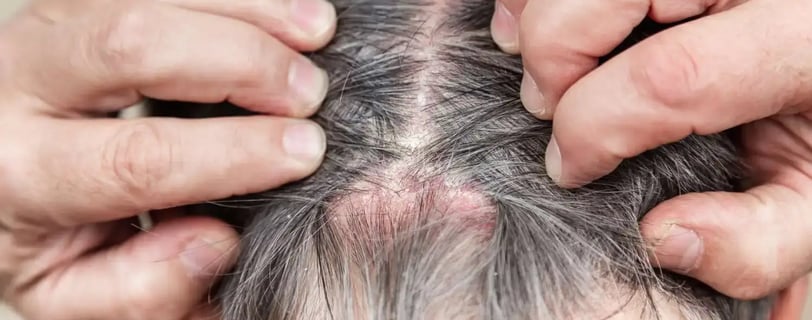

VeryWell Health
1. Gentler Cleansing
Instead of stripping your scalp of natural oils, sulfate‑free surfactants (like cocamidopropyl betaine or decyl glucoside) remove dirt and buildup without leaving your skin feeling tight or dry. That means fewer flare‑ups of irritation and less flaking after each wash.
2. Maintains Scalp Moisture
By preserving the lipid barrier—your scalp’s natural moisture shield—sulfate‑free formulas help prevent the dryness that often triggers itchiness. When your scalp stays balanced, it’s less prone to tightness and scratching.
3. Reduces Redness & Inflammation
Harsh detergents can aggravate existing redness or inflamed patches. Sulfate‑free shampoos, on the other hand, soothe sensitive skin and calm redness by minimizing exposure to ingredients known to exacerbate irritation.
4. Better for Color‑Treated & Chemically Treated Hair
If you’ve got a fresh color, keratin treatment, or chemical service, sulfates can cause premature fading and added dryness. A sulfate‑free formula cleans without whisking away pigment or weakening chemical bonds, so your hair remains vibrant—and your scalp stays comfortable.
5. Minimizes Flaking & Dandruff Symptoms
When your scalp isn’t over‑stripped, there’s less dead skin buildup. That means fewer flakes, reduced dandruff visibility, and a more consistent, itch‑free experience from one wash to the next.
6. Compatible with Sensitive or Reactive Skin
If you’ve experienced allergic reactions to fragrance, parabens, or other common shampoo ingredients, switching to a sulfate‑free base eliminates one major irritant. This makes it easier to pinpoint other triggers and build a truly soothing haircare routine.
7. Supports Overall Scalp Health
A balanced scalp environment encourages healthy hair growth. By avoiding harsh sulfates, you maintain optimal pH, encourage natural oil production where it’s needed, and reduce the risk of microscopic tears or cracks in the skin that could lead to infection or worsening sensitivity.
How to Choose the Right Sulfate‑Free Shampoo
Choosing a sulfate‑free shampoo isn’t just about ditching harsh detergents—it’s about finding a formula that actively soothes your itchy scalp and supports long‑term health. Here’s what to look for:
Look for Soothing Ingredients (Tea Tree, Aloe, Oatmeal)
1. Tea Tree Oil
Naturally antimicrobial and anti‑inflammatory, tea tree helps calm redness and reduce itch caused by dandruff or mild infections.
Look for labels listing “tea tree leaf oil” or “melaleuca alternifolia” near the top of the ingredient list.
2. Aloe Vera
A hydrating powerhouse that instantly cools and soothes irritated skin. It also contains vitamins A, C, and E to promote healing.
Choose products with pure aloe vera gel or juice (often listed as “aloe barbadensis leaf juice”).
3. Oatmeal (Colloidal Oatmeal)
Known for its gentle exfoliating and moisturizing properties, colloidal oatmeal helps lock in moisture and prevent dryness.
Check for “avena sativa (oat) kernel meal” or “colloidal oatmeal” in the formula.
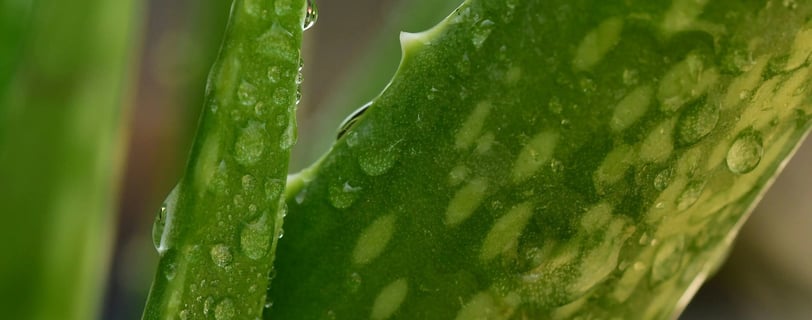

Unplash
Avoid Irritants (Fragrance, Parabens, Harsh Alcohols)
1. Artificial Fragrances
Synthetic scents can trigger allergic reactions or further irritate sensitive scalps. If you notice terms like “fragrance,” “parfum,” or a long list of extra chemicals, steer clear.
Opt for “fragrance‑free” or lightly scented with natural essentials (e.g., lavender, chamomile) instead.
2. Parabens & Sulfate Alternatives That Harden Scalp
Parabens (methylparaben, propylparaben) serve as preservatives but can irritate reactive skin.
Some so‑called “natural” alternatives (e.g., certain alcohols like SD alcohol or isopropyl alcohol) strip moisture; avoid any “alcohol” unless it’s preceded by a fat‑derived term like “cetyl” or “stearyl.
3. Harsh Alcohols & Preservatives
Look for “denatured alcohol” or “ethanol” and leave it off your list—it can exacerbate dryness.
Instead, opt for gentle preservatives such as potassium sorbate or sodium benzoate, which maintain safety without compromising scalp comfort.
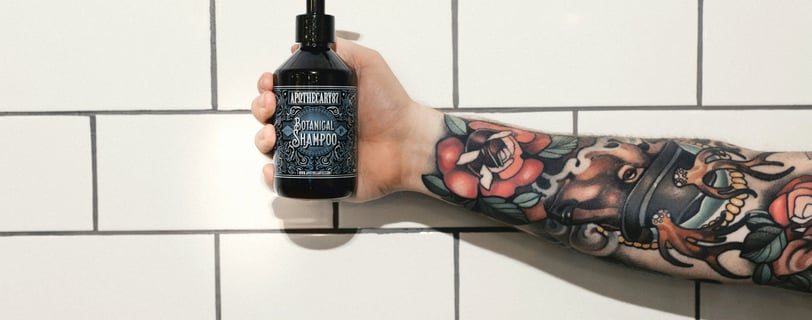

Unplash
Check pH Balance and Scalp‑Friendly Surfactants
1. pH Balance (Around 5.5)
A healthy scalp sits around pH 4.5–5.5. Shampoos that test too alkaline can lift cuticles and weaken the skin barrier.
If the bottle or brand info lists a pH (often in the FAQ or “About” section), aim for anything between 4.5 and 6.0.
2. Mild Surfactants (Cocamidopropyl Betaine, Sodium Cocoyl Isethionate, Decyl Glucoside)
These cleansers generate enough lather to remove dirt without stripping away natural oils.
Scan the ingredient list for “cocamidopropyl betaine,” “sodium cocoyl isethionate,” “decyl glucoside,” or “sodium lauroyl methyl isethionate.” Any of these near the top signals a gentle formula.
3. Avoid Lesser‑Known “Greenwashing” Ingredients
Just because a label says “plant‑based” doesn’t mean it’s automatically gentle. Ingredients like “sodium lauroyl sarcosinate” can still be drying if paired with other sulfates or silicones.
Shampooing Tips for Itchy Scalps
1. Pre‑Wash Scalp Massage
Gently massage your dry scalp with fingertips to loosen flakes and increase blood flow.
2. Dampen Hair Thoroughly
Use lukewarm water to rinse—hot water can strip oils and worsen itch.
3. Apply Shampoo to Scalp
Put a small amount of sulfate‑free shampoo directly on your roots, focusing on itchy areas.
4. Work Up a Gentle Lather
Use circular motions to distribute the formula without scrubbing aggressively.
5. Let It Sit Briefly (1–2 Minutes)
Allow soothing ingredients (like tea tree or aloe) to penetrate before rinsing.
6. Rinse Completely
Ensure no residue remains—leftover shampoo can trap debris and exacerbate itch.
7. Condition Only the Ends
Apply conditioner from mid‑lengths to ends to avoid weighing down or irritating your scalp.
8. Pat Dry, Don’t Rub
Gently squeeze excess water with a microfiber towel to prevent friction and redness.
9. Follow With a Scalp Treatment (Optional)
If itching persists, apply a leave‑on scalp serum or oil to soothe and hydrate.

